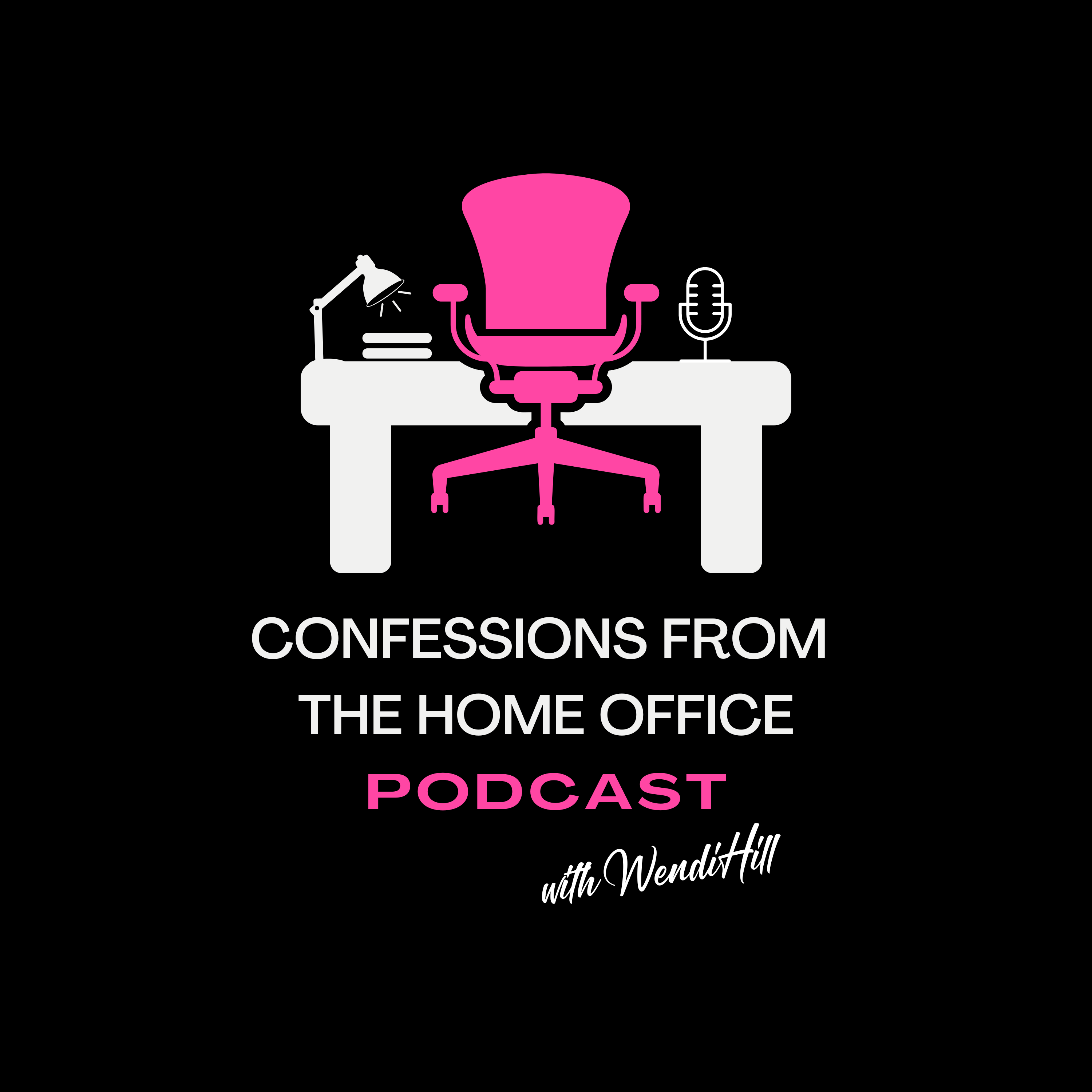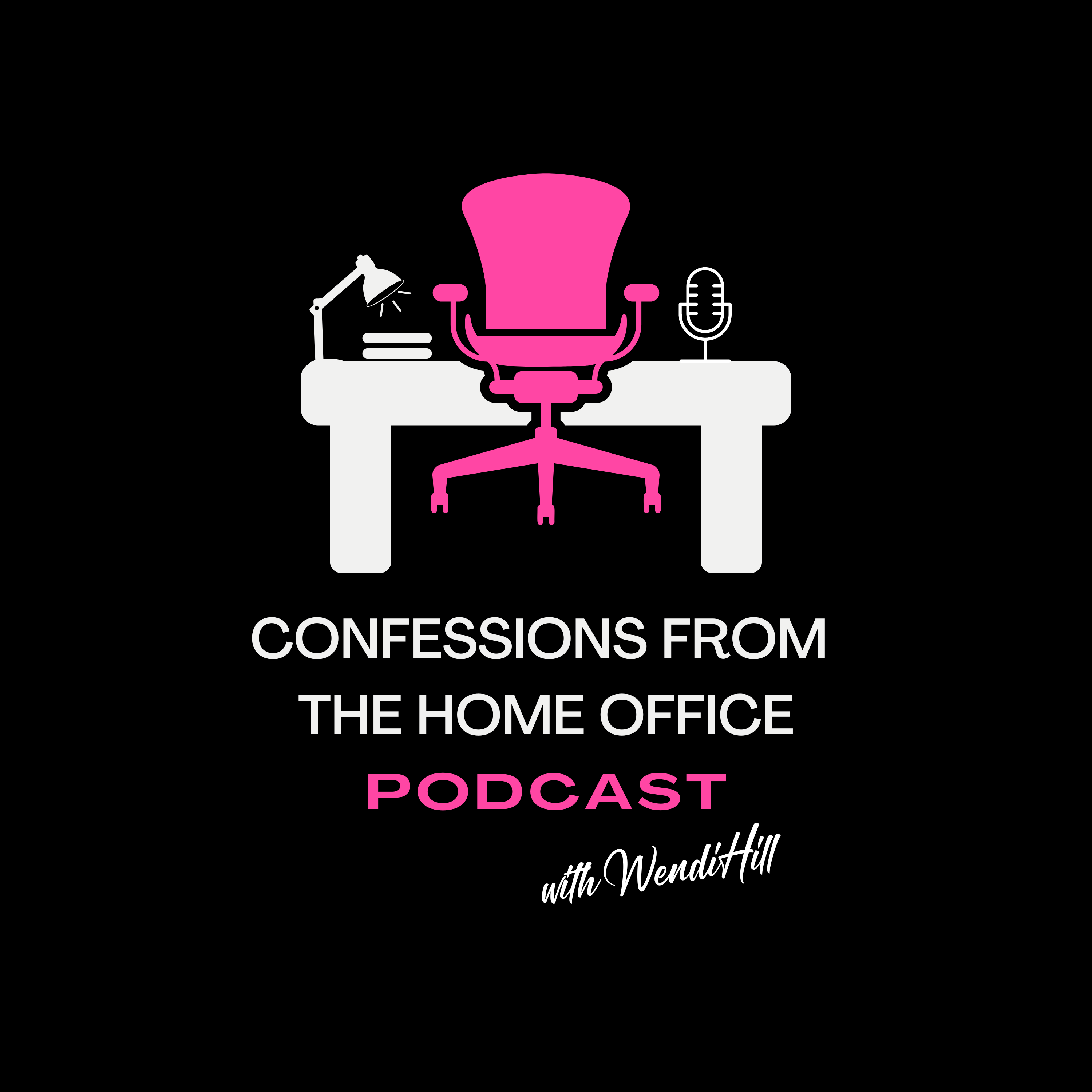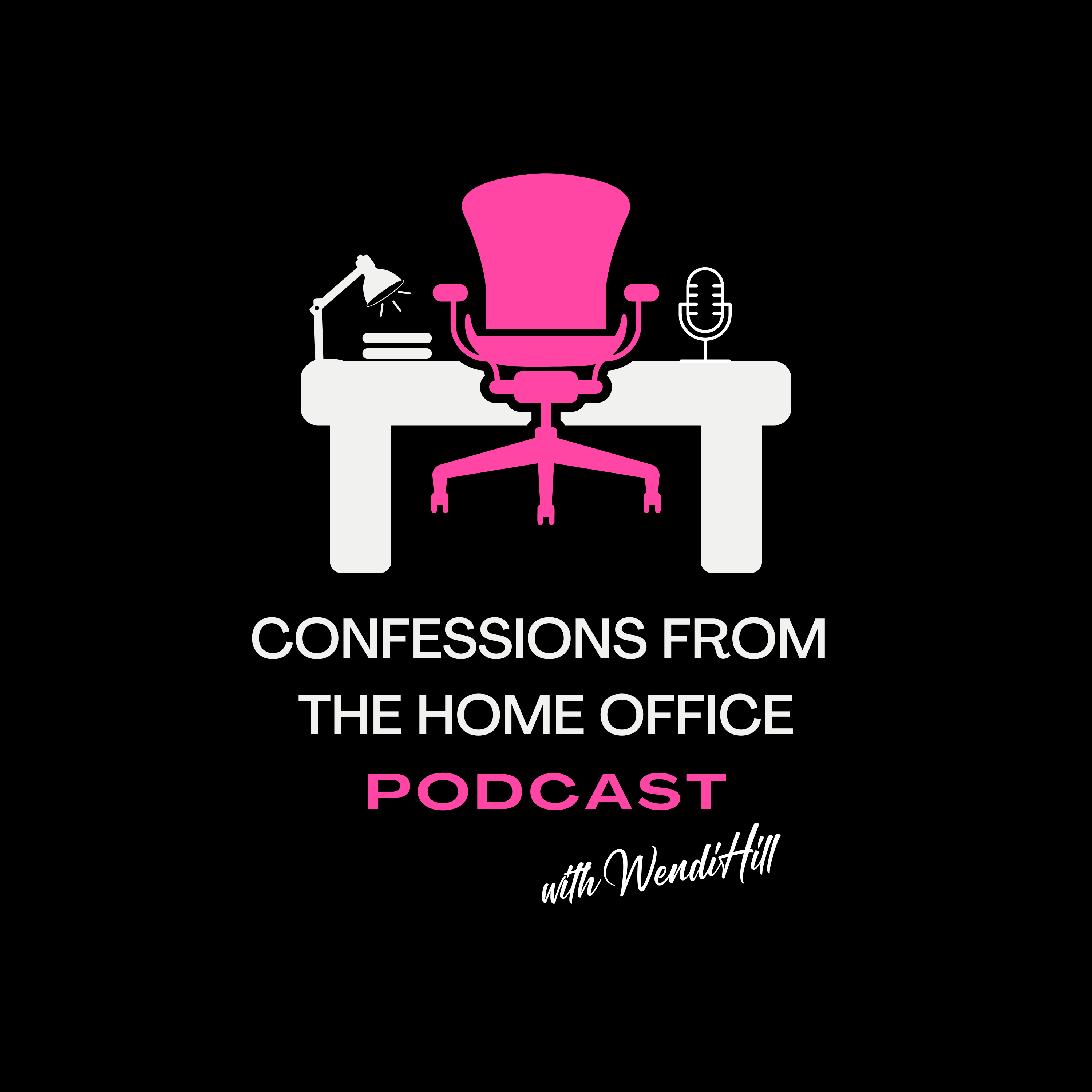Episode Transcript
[00:00:06] Hi, and welcome to Confessions from the Home office. For almost 20 years, I've worked out of my home. I have a marketing consulting company, and it's called Market Momentum. I'm in Greenville, South Carolina, and I started a podcast this year. And each week I either talk about working from home or a relevant marketing topic or have other entrepreneurs on so they can share their story about being a business owner and share with. They do. So be sure to subscribe and follow wherever you watch your podcast or listen to your podcast, because episodes come out each week, and that way you won't miss an episode. So this week, I'm going to take kind of a deep dive into a topic that's really important, and I feel like it plagues many businesses, and I call it the bottle rocket approach to marketing. So years ago, when I first went out on my own, I did some work for a firm in town named Radii. And Jay Kirkman and his wife Mindy own that firm. And Jay taught me a lot about copywriting, and both of them taught me a lot about client management and expectations. And I remember hearing Jay talk about, they're just firing off bottle rockets. They just can't fire off bottle rockets. You've got to have a strategy. You've got to have a plan in place. And that description really stuck with me just because as time has gone on and as I've met clients and talked to them where they are with their marketing journey, so many of them have just been firing off bottle rockets. And so you may know what that means. You think about, have you. Have you ever talked to someone or have you ever been in the situation where you're like, okay, we've got to do something with marketing. We're going to go spend money on TV spots, We're going to go spend money on outdoor. We're going to go spend money on direct mail. And people don't. Don't do direct mail as much now, but some still do. And so they just kind of do it. They. They write the check, They're. They're spending money, they're doing something. So they should see.
[00:02:06] They never really measure it. They get frustrated, they get busy, and everything just kind of fades out and they get frustrated.
[00:02:14] So by the end of this episode, you're going to know how to transform your marketing from firing off bottle rockets to having a focused, strategic program to market your business. So let's talk just a little more about the bottle rocket syndrome. So that's kind of when you're like, we've got to have Activity, We've got to do something. We haven't been doing anything for a while or the person that's hand handling marketing has been promoted onto something to do something else in the business. We're just going to do something. We've just got to have activity. And is there really a plan? No, but we spent the money.
[00:02:50] You, a lot of times have wasted the resources. Maybe you've started a Google Ads program or you've started Facebook ads, but you don't even really know how to interpret the analytics on the back end and you're not really tracking the leads that are coming in. So you don't know if it's successful and you feel scattered and you kind of feel ticked off that, that you, you did all this, you spent the money and what do you really have to show for it? So then you're like, well, marketing is just a joke, it doesn't work. Or we've been burned by this vendor, or we've been burned by this, we don't want to do anything else. So really what you have to do is you have to have strategic marketing in place. And a lot of times I think the word strategic marketing kind of makes people glaze over. Like, what is that? I don't have time to sit down and do this big long.
[00:03:37] But strategic marketing is not about creating temporary excitement, it's about being consistent and it's about being in to your marketing and growing your business for the long term. So you really want to establish the value of your brand and you want to have the right target audience and you really want to think through your target audience and create meaningful connections with them, what matters to them. You can't just come up, excuse me, my nose is such a. You need to build trust and credibility over time and generate predictable sustainable growth for your business. So when you're spending the money, you understand why and what you're getting for it.
[00:04:17] You need to really look at the resources because every marketing dollar that you spend is important. We don't have just unlimited money to keep spending on marketing. You need to know where your resources are going, what the impact is.
[00:04:32] Eliminate wasteful spending and you need to invest in things that actually move the needle. Now we'll stop and say for a minute, I've worked with clients before where we've had a plan and we're doing things and they take off and go to a conference or they take off and meet with a small group within their industry and they come back and say, we need to be doing this, we need to be Doing that. I believe all those thoughts are valid and I think we should look at everything. But I don't believe in just knee jerk adding things to the mix unless we can see some proof from some other people in the industry or we really understand what's going to happen with that.
[00:05:09] I'm not saying just set a plan and work the plan. You can't always do that because the market changes, your customers can change, technology can change. But I really feel like that you have to get a plan in place and really work the plan for a little while. Things just don't happen overnight. And I know I say that a lot, but you really have to have a little bit of patience. So for businesses and individuals, this gets really frustrating. They've already, a lot of times, they've already written a lot of checks, they've paid a lot of payments, they didn't see anything. And so now they're working on a strategic marketing plan. They're like, I paid for this plan and nothing's happening. It takes a little bit of time. It's an investment and like I said, it's a marathon, it's not a sprint. So you have to really break the cycle and just hang on and trust and keep monitoring what you're doing and track and, and things will start to fall in place.
[00:06:02] So let's break down how to move in a little more detail and how to move from bottle rockets into something that's a little more laser focused and a strategy. So the first thing that I always say we need to do is an audit or an assessment. And a lot of times I don't even really say those words because again, people will glaze over and think I have to sit, listen to a bunch of questions, they're going to go away, they're going to come back with all these boring slides. Basically all you have to do is what have you been doing with marketing? And even if that is nothing, that's fine. At least be honest about it. If you have been doing something, what's working, what's not working, and then kind of understand where you are in the market. Are you a leader? Do you have a ton of competition? Are there people you want to be more like?
[00:06:47] Are there some things you felt like you've done incorrectly that you need to change, it's time to be honest. So after you get through your audit or assessment and you've gone through that and you really understand it where it is, then you have to have goals. And I know a lot of times I keep saying this, but I Feel like this is where people get stuck. They're. I don't want to sit down and work on goals. That's boring. Well, no, it's really not. You need to have, where do you want to go with things? If you're going to be spending money on things and you're going to have activities, you've got to be doing it for some reason. What are your goals? Are you wanting to increase sales by 10% next year? Are you wanting to increase the customer retention rate so you're not having to go after as many new customers by a certain percentage? Do you want to have just a consistent brand voice, consistent messaging across all your platforms? Those are all realistic goals that you could do. And your goals could be about anything. On marketing, those are just a couple of examples.
[00:07:43] Then we would have to talk about your audience and you really need to understand them. Like I know who my best target audience is, the one that will invest, the one that will stay around the longest, what their goals are. So I can I try to mirror and find other clients like them. But you really need to understand like who your clients, what do they buy, why do they buy? What's the journey with them? Is it a short sales cycle? Is it a long sales cycle?
[00:08:13] What are their pain points? What motivates them? You really need to think this through. I mean, you could even make up a fake character based on your best client and write down all about them so you still, you really understand where they're coming from and how to market to them. And then you have to look at having a cohesive, a cohesive strategy. So your marketing efforts have to align with your business objectives. We have to look at all different types of marketing communications. Are you going to do, are you going to have a lot of social campaigns or does that not really where your customers are hanging out? Is it more of an email marketing? Is it more going to trade shows? Does everybody in your industry, do they go to trade shows and buy from there? And you need to be really strategic on how you reach those people there.
[00:08:59] It just all depends on your business. And then you, you need to be consistent. And I think this is kind of the key is you've got to be consist. You can't just write all this stuff down and say we've got a plan and then nothing happens because then you're back to being frustrated that you've invested time and money and nothing's going on. And then implementing and monitoring is kind of the last phase. And you just have to do the work, whether it's you or you outsource it to somebody else to handle it. You have to implement it and you have to monitor it and see what's working. We're always going to have to tweak and we're always going to have to optimize. We're going to have to track and see what's performing, what's not and go from there. But that's the beauty of it. We have so much data we can look at now. I mean, you put something on social media, you get a ton of data. I put a reel up weeks ago of my son when he was in a beauty pageant for my daughter's sorority. And like three weeks later I get this report from Meta on the real on how well it did me just on that. Imagine if you were doing consistent business posts over and over, how much data you would have to look at and see where people are coming from, how long they watched it, did they click through to something.
[00:10:13] Email marketing has great analytics now where you can see how many times somebody opened it. Did they open it on their phone or did they open it on a laptop and where were they from and who unsubscribed. You can go back and figure out who unsubscribed and maybe figure out why. So, not to get off track, but it's just great how much data we have these days. So you got to do it. You got to do it and you got to do it consistently and do it long enough so you've got data to make good decisions.
[00:10:43] So let's, let's kind of wrap things up and talk about why is strategic marketing important?
[00:10:50] Marketing is not about who can shout the loudest anymore or cause the biggest stir, because again, that's firing off bottle rockets. That might work for a couple of days, that might work for a week, but then it kind of goes away. I mean, marketing and think about social media, things are moving so quickly. You get on X, things are moving quickly. You get on Instagram, things are moving quickly. That somebody posted 10 minutes ago is old. So you've got to think about building genuine connections. You've got to show real value. You've got to create a compelling story and you've got to actually solve customers problems. And I've always said that I will not talk about politics on this podcast and I'm not going to talk about politics, but I am going to talk about with the past, this election that we just had.
[00:11:42] It doesn't matter who you voted for.
[00:11:46] The candidate that won had the best marketing plan and executed it. It was amazing. I watched the campaigns from a marketing perspective, policy aside, and the one that was planned and the one that was consistent. And when I kept hearing the same messaging over and over but on different platforms consistently, you started seeing the numbers change. And. But it wasn't overnight. It took months and months and months. So just think about it. Things aren't quick. If every. If anything was easy, we. We would all be doing it.
[00:12:26] You have to get in and really do the work. If you don't have time to do the work, outsource it. That's what all these marketing people are out there for.
[00:12:35] But you've got to. You've got to figure out what works for you. Do a little planning on the front end, execute consistently, and then measure. So ditch the bottle rockets. Save those for the Fourth of July. We'll have plenty of fun with them then. And work on intentional marketing that you execute consistently and you look at the numbers and figure what. You figure out what you need to do to make it even better.
[00:13:02] So I have something that I want you to do, a little bit of homework. And this doesn't even take. It doesn't take a lot of time. You could just. You can do this while you're driving to work or while you're taking a shower in the morning. I want you to start thinking about what you're doing with your marketing. You may want to write it down, but you probably can just think it through. What are you doing? Are you firing off bottle rockets? Or do you have a system in place? Do you feel like that it's a good system? Do you feel like that it's working? Is there something you feel like is missing?
[00:13:32] Next week we're going to talk more about audits, and I'm going to have a tool for you that you can use if you want to get a little more specific or kind of get things down on paper more. But this will be something that you can do yourself. But I'll walk you through it. So that's it for this episode of Confessions in the Home Office. Again, I hope you will subscribe and follow so you don't miss an episode. Episodes come out every Monday, and hopefully this will help you to start transforming your marketing from chaos to a great, solid strategy. Thanks.


